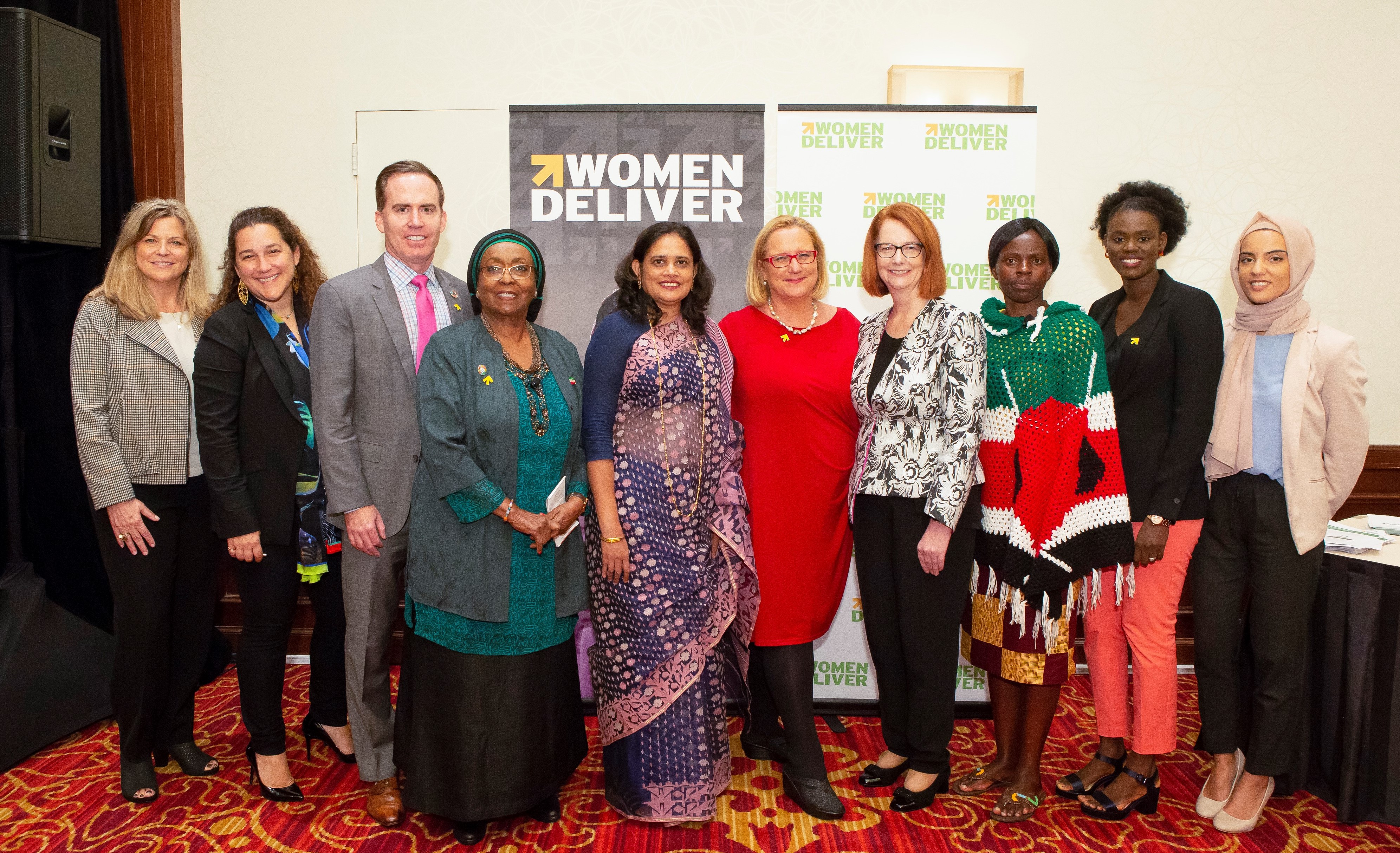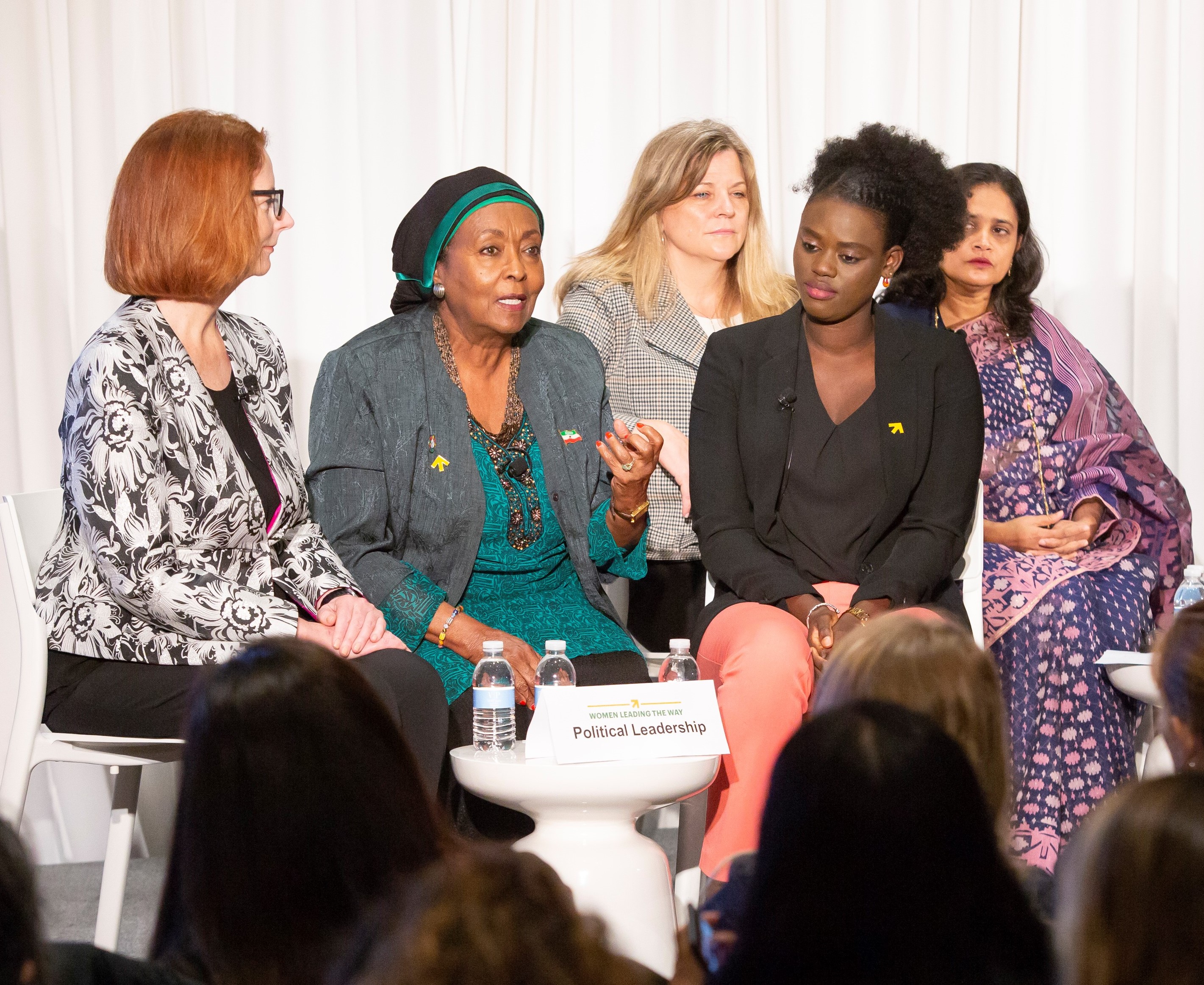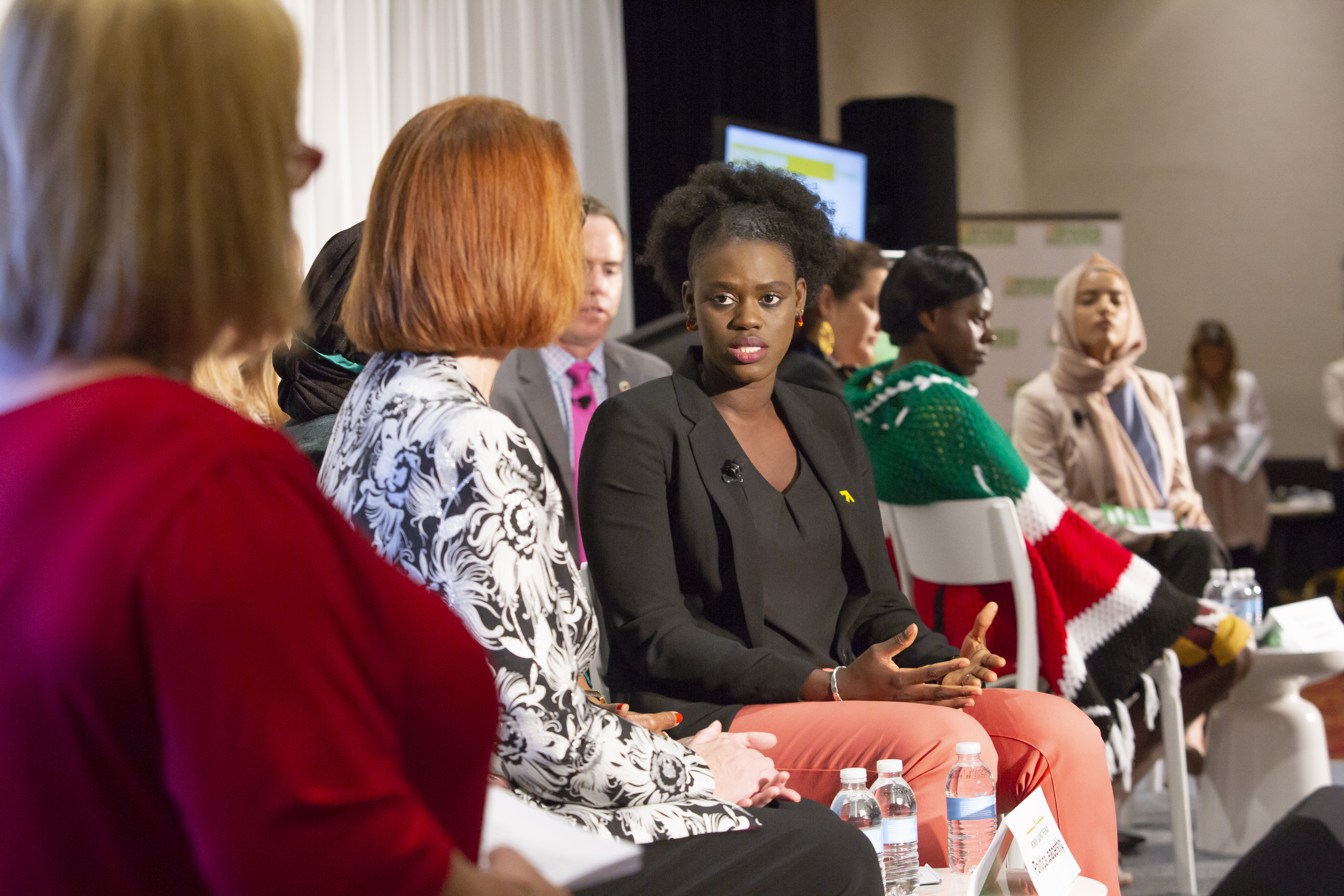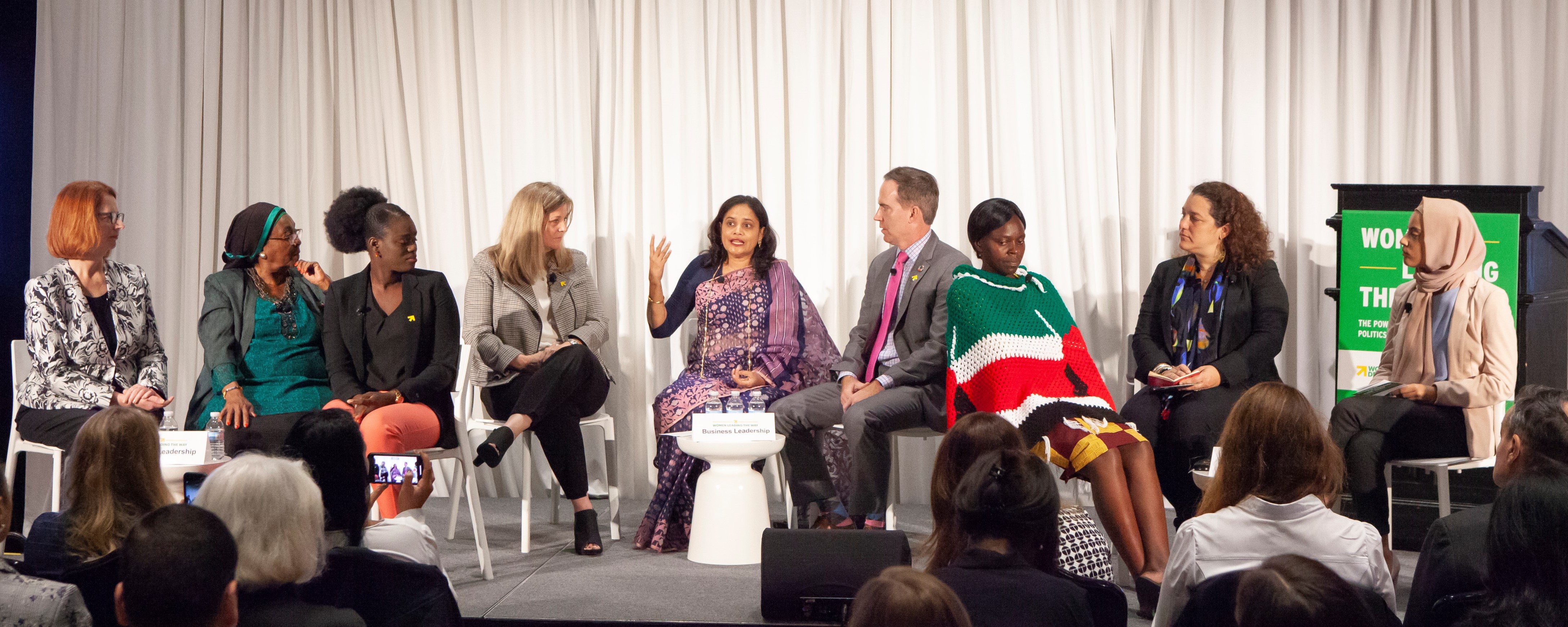What We Can Learn from #WomenWhoLead

From left to right: Deanna Bass, Celina De Sola, Nate Hurst, Edna Adan Ismail, Nazma Akter, Katja Iversen, Julia Gillard, Ann Gachambi Njuki, Isatou Bittaye, and Yasmine Ouirhrane (Credit: Ayano Hisa).
From the #metoo movement, to the first Gender Equality Advisory Council to a G7 Presidency, there is growing recognition that we must invest in and advocate for women’s agency and leadership at all levels. Women’s decision-making is critical to advancing gender justice and accelerating economic, social, and political progress for all.
“We know that when you invest in girls and women, there’s a ripple effect and everybody wins. But talking about it is not enough. We need to go from talk to action,” said Katja Iversen, President/CEO of Women Deliver.
As world leaders gathered in New York during the 73rd United Nations General Assembly, Women Deliver sought to highlight the power of women’s leadership by engaging experienced and emerging changemakers alike at an event entitled Women Leading the Way: The Power of Women’s Leadership in Politics, Businesses, and Communities. By bringing together these diverse viewpoints, the panel discussion identified commonalities across sectors, geographies, and cultures on how we can better support #WomenWhoLead.
Watch the Facebook Live of the event here.
Trailblazing Women in Politics

Political leadership panelists Julia Gillard, Edna Adan Ismail, and Isatou Bittaye give remarks (Credit: Ayano Hisa).
Giving women the tools to become leaders begins on a small scale: at home, in school, and in local communities. When young women have the opportunity to take on leadership roles early in life, they start to build confidence and can envision themselves in positions of authority later on.
“It starts with educating a girl,” declared Former Australian Prime Minister Julia Gillard when asked to share an important lesson she has learned along her path to leadership. Gillard as well as Dr. Edna Adan Ismail, former Foreign Minister of the Somali Republic, spoke about how education sparked the beginning of their political careers. As the first women to hold their offices, Prime Minister Gillard and Dr. Ismail are also important reminders of the need for female role models, a key element needed to inspire girls and women to pursue leadership roles.
Young Leader Isatou Bittaye echoed the need to build an equal playing field for all. Bittaye saw that young people in the Gambia had limited access to political campaign resources. She, along with her fellow youth advocates, created the Not Too Young to Run campaign, which supports young people’s participation in parliamentary elections by offering campaign strategy and trainings for youth candidates. The group also works with key political organizations to include young people on nomination lists. As a result, four young people were elected into the Gambian Parliament in 2017.
Raising the Bar in Business

Young Leader Isatou Bittaye speaks about the importance of empowering young political leaders (Credit: Ayano Hisa).
Women around the world are founding companies and finding innovative ways to improve economies for all. Nazma Akter, Executive Director of Awaj Foundation in Bangladesh, described the need for female leaders to elevate other women. “[The Awaj Foundation is] trying to organize grassroots workers at the factory level, especially the women leadership, and trying to educate and empower them on how to raise their voice, how to negotiate for themselves.”
Akter, who began work at age 11, explained that girls who spoke against unfair wages and unsafe working conditions were often labeled “bad girls” and lost their jobs. Today, her organization helps women in the garment industry organize for fair pay and decent working conditions.
Deanna Bass, Director of Global Diversity and Inclusion at P&G, shared how harmful myths about women in the workplace inhibit their careers in the long-term. Bass says to remove these stereotypes, we must change our perspective and begin to look at the ways that men’s potential is often overestimated in the private sector.
Nate Hurst, Chief Sustainability and Social Impact Officer at HP, also stressed the importance of combatting gender stereotypes. To counter sexist attitudes in the workplace, HP conducted unconscious bias trainings at all levels of the organization and increased the make-up of women on the HP Board of Directors to 40-percent. These initiatives have big payoffs. Research shows that companies with the most gender diversity on their executive teams are 21-percent more likely to outperform on profitability, and 27-percent more likely to demonstrate superior value creation.
It Takes a Village-And Some

Panelist Nazma Akter speaks about her business leadership experience (Credit: Ayano Hisa).
We know that investing in women’s leadership elevates families, communities, and entire countries. It is paramount that female community leaders receive adequate resources and recognition because their local initiatives and progress ultimately radiate outward and lead to large-scale changes over time.
“We need to invest in girls and women at the community level to change paradigms, which will then effect policy,” explained Celina De Sola, co-founder of Glasswing International, a social enterprise that serves communities through health, education, employment, and public space initiatives. These programs aim to build girls’ self-esteem, in addition to expanding their financial and entrepreneurial capabilities.
Community leaders are essential to accelerating gender equality because their work has a direct impact on education, health services, peer networks, and legal rights. This work across sectors empowers girls and women to become stronger leaders – those who change the world for the better.
The Way Forward
From politics, to business, and community leadership, it is clear that meaningful participation of girls and women in positions of authority holds abundant benefits for everyone. In all sectors, at all levels, women’s voices must be heard. Across the world, gender equality movements have taken the global spotlight. This moment is one of immense importance. We must continue to stand up, speak out, and power progress for all.


